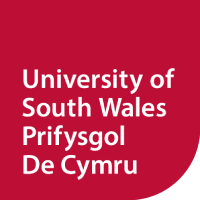Prof A Guwy, Prof R Dinsdale, Dr J Massanet-Nicolau
No more applications being accepted
Funded PhD Project (Students Worldwide)
About the Project
I. Scientific excellence.
The global water industry is a major GHG emitter but delivers major societal, environmental and economic benefits by producing safe drinking water and treated sewage for discharge to the environment. The UK Water Industry consumers approximately 3% of generated electricity and Welsh water energy consumption is 245GWh p.a. with 25% of this from aeration and 15% from transport. This project seeks to reduce water sector GHG emissions whilst promoting the deployment of renewable energy and clean vehicle fuels in the form of hydrogen. The supervisors have world leading expertise In hydrogen and wastewater treatment process optimisation.
II. Clear aim and hypothesis.
The aim of the project is to optimise the integration of renewable electricity powered water electrolysis for hydrogen production for vehicles with the use of the electrolytic oxygen to reduce GHG emissions from sewage treatment. The central hypothesis is: does the use of electrolytic oxygen improve the process efficiency of sewage treatment and leverage the deployment of the hydrogen fuel for reduced GHG emissions.
III. Methodology and innovations.
The PhD student will develop and implement a number of experimental programmes using the state of the wastewater treatment reactors at USW. The effect of a range of O2 concentrations (from 20-100%) on Biochemical Oxygen Demand (BOD) treatment efficiency, waste activated sludge production, nitrogen removal and gaseous emissions will be investigated. Oxygen can be input into the aeration tanks in a variety of ways but most Wastewater Treatment Plants (WWTPs) in the UK use the oxygen present in air which is only 20% by volume. Air based aeration systems cannot dissolve more than 25% of the available oxygen into the wastewater, and so the process is energy inefficient. The fully instrumented test rig will be operated with a synthetic feed Initially to simulate a defined range of sewage organic loads and retention times before being operated at a sewage treatment plant to test the original hypothesis under industrial conditions and feedstock composition. A techno-economic assessment along with an energy and microbial kinetic model of the proposed hydrogen and oxygen process Implementation will also be delivered.
IV. Strategic relevance.
This project will address two major global Issues the energy efficient protection of water resources and the provision of low carbon renewably produced energy vectors such as hydrogen.
V. Interdisciplinarity and fit with relevant DTA programme.
The project brings together the expertise at in hydrogen energy systems, mixed microbial biome optimisation and the development of process monitoring and control.
Applications
Applicants must apply using the online form on the University Alliance website at https://unialliance.ac.uk/dta/cofund/how-to-apply/. Full details of the programme, eligibility details and a list of available research projects can be seen at https://unialliance.ac.uk/dta/cofund/
The final deadline for application is Monday 8 October 2018. There will be another opportunity to apply for DTA3 projects in the spring of 2019. The list of available projects is likely to change for the second intake.
Funding Notes
DTA3/COFUND participants will be employed for 36 months with a minimum salary of (approximately) £20,989 per annum. Tuition fees will waived for DTA3/COFUND participants who will also be able to access an annual DTA elective bursary to enable attendance at DTA training events and interact with colleagues across the Doctoral Training Alliance(s).
This project has received funding from the European Union’s Horizon 2020 research and innovation programme under the Marie Skłodowska-Curie grant agreement No 801604.

 Continue with Facebook
Continue with Facebook

